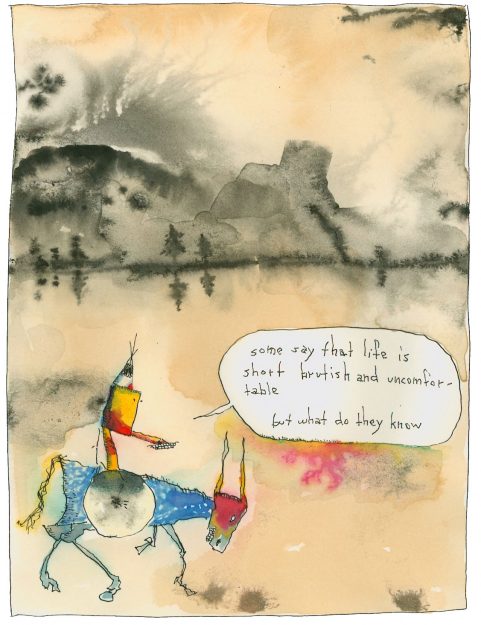Kudos for a natural
As much as I appreciate Jeff Bridges and the role he played so convincingly in The Big Lebowski, your coverage of Bridges (“The Natural,” Fall 2010) strictly concerns his long interest in Buddhism and socially engaged Buddhism in particular. This is a side of Jeff Bridges that is seldom seen, and your magazine and online video presentation have provided the perfect forum. More power to you, and if you are going to choose celebrities for your cover, what better choice?
—David Howarth
Manchester, UK
From what I saw, Jeff [Bridges] is as regular a dude as any janitor. I kind of see this in the reverse: he has risen out of the depths of celebrity to join in equality. In a lot of ways, his celebrity is inconsequential; his efforts for Engaged Buddhism are what the real story is. It is a matter of happenstance that he is some big-time movie dude. What’s happening is that an energetic, resourceful Buddhist is being spotlighted inTricycle—the fact that he has celebrity is superfluous. And if his celebrity attracts people to explore mindful awareness who otherwise would not have done so, that is just an extra bonus.
What I don’t get is why other Buddhists are getting hung up on his celebrity in the first place. Why are Buddhists so averse to this concept of celebrity? I would caution my compeers that the future will bring many famous people to Buddhism, and many Buddhists will become famous. One must not forget that the idea of fame is just another concept.
—Gary M. Silvia
Waterville, ME

About those thoughts
Martine Batchelor’s retreat talk on meditation in the Fall 2010 issue of Tricycle provided, I think, competent and lucid but somewhat one-sided instructions on meditation in terms of how to quiet the mind even in the midst of obsessive or recurring thoughts. I especially liked her recommendation to simply listen to whatever sounds arise in the immediate environment as a meditation practice in itself. But what is missing (or one-sided in her description of meditation) is the recognition of the reciprocal relationship between affect and cognition. Psychologists have found that not only are emotions generated by thoughts or cognition, cognition is often generated by emotion. More specifically, it has been my experience, as both a clinical psychologist and a Zen student, that ruminating thoughts are generated by unacknowledged affect. That is, ruminating thoughts occur because they are a maladaptive and usually unsuccessful attempt to cover over, obscure, and ultimately, to eliminate feelings that are threatening to one’s self-esteem. Although mindfully disengaging from the content of the recurring thoughts by gently returning attention to the breath eventually works as a way to quiet the mind, it is a practice that misses out on real transformation. That is, when the underlying emotion that fuels the obsessive thoughts is acknowledged and, most importantly, accepted (it is here that the affectively driven experience of self-directed empathy, or what some psychologists call self-compassion, comes into play), ruminating thoughts effortlessly cease while the meditator becomes more completely and authentically grounded in the present moment.
—David T. Andersen, Ph.D.
Stamford, CT
Just one glass?
In response to Don Lattin’s article on practice and recovery (Fall 2010), it would seem to me that if one is “in recovery”—that is, has accepted the First Step of AA or NA (“We admitted that we were powerless over drugs/alcohol— that our lives had become unmanageable”)— then they have demonstrated empirically that for themselves, any use of intoxicants leads to suffering and should be avoided in favor of maintaining clarity and mindfulness.
As Thich Nhat Hanh has observed, while one glass of wine might be OK, while three glasses of wine are harmful, there can’t be that third glass unless there was the first.
—Emmet Bondurant
Clearwater, FL
Send letters to editorial@tricycle.com